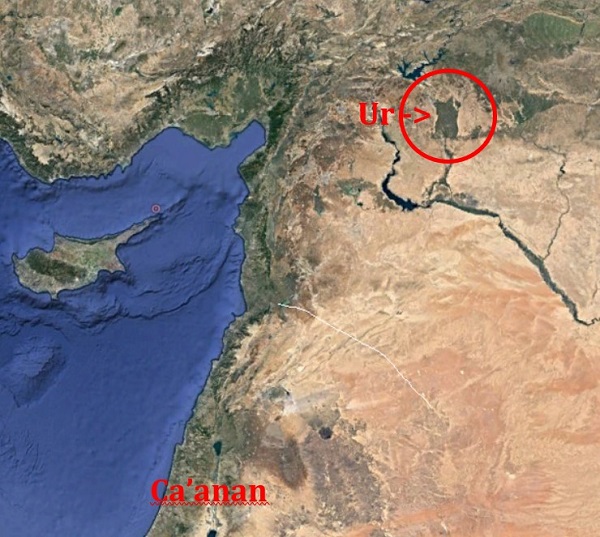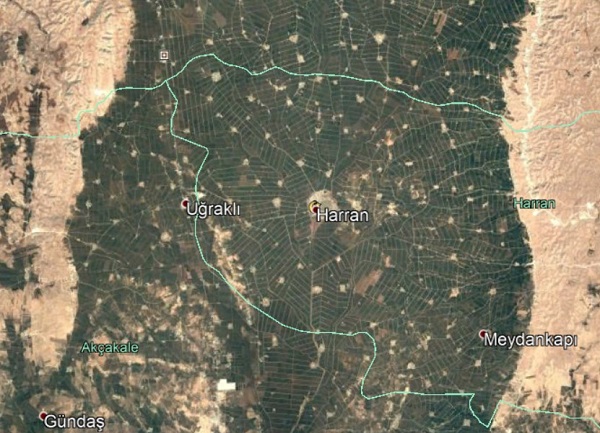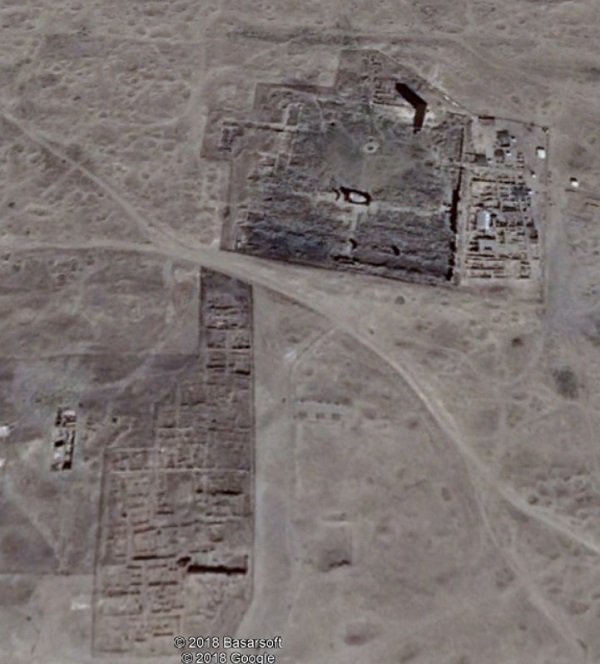For those of you who continue to espouse the notion that Yovheliym (Jubilees) is not an inspired work, you may have to also denounce the gospel of Luqas (Luke).
Luqas (Luke) 3:35-36
Which was the son of Serug, which was the son of Re`u, which was the son of Peleg, which was the son of Eber, which was the son of Shelach, 36 Which was the son of Qeynan, which was the son of Arpakshad, which was the son of Shem, which was the son of Noach, which was the son of Lemek,
This passage presents a real problem for the commentators, as none of them have been able to make sense of this name Qeynan, since it does not appear in the genealogies set forth in Bere’shiyth (Genesis) 10:24; 11:12; Divrei Hayamiym Ri’shon (1 Chronicles 1:18, 1:24); nor does it appear in the Septuagint (LXX), or the Cepher Yashar.
Where does it appear?
Yovheliym (Jubilees) 8:1-5
IN the twenty ninth jubilee, in the first week, in the beginning thereof Arpakshad took to himself a woman and her name was Rasu’eya, the daughter of Shushan, the daughter of Eylam, and she bore him a son in the third year in this week, and he called his name Qeynan. 2 And the son grew, and his father taught him writing, and he went to seek for himself a place where he might seize for himself a city. 3 And he found a writing which former generations had carved on the rock, and he read what was thereon, and he transcribed it and sinned owing to it; for it contained the teaching of the Watchers in accordance with which they used to observe the omens of the sun and moon and stars in all the signs of heaven. 4 And he wrote it down and said nothing regarding it; for he was afraid to speak to Noach about it lest he should be angry with him on account of it. 5 And in the thirtieth jubilee, in the second week, in the first year thereof, he took to himself a woman, and her name was Melka, the daughter of Madai, the son of Yapheth, and in the fourth year he begat a son, and called his name Shelach; for he said: Truly I have been sent.
There is no other reference in all of scripture which gives this reference. Let’s take a look at some commentaries on this verse:
Verse 36. No entry from Barnes for this verse.
Adam Clarke's Commentary on the Bible
Luke 3:36
Of Cainan - This Cainan, the son of Arphaxad, and father of Sala, is not found in any other Scripture genealogy. See Ge 10:24; 11:12; 1Ch 1:18, 1Ch 1:24, where Arphaxad is made the father of Sala, and no mention at all made of Cainan. Some suppose that Cainan was a surname of Sala, and that the names should be read together thus, The son of Heber, the son of Salacainan, the son of Arphaxad, etc. If this does not untie the knot, it certainly cuts it; and the reader may pass on without any great scruple or embarrassment. There are many sensible observations on this genealogy in the notes at the end of Bishop Newcome's Harmony.
Coke's Commentary on the Holy Bible
Luke 3:36
Ver. 36. Which was the son of Cainan,— This Cainan is found only in the LXX [this is also false, as Cainan [Qeynan] is not found in the LXX [Septuagint]: but all the other names, from Abraham back to Adam, are found also in the Hebrew of the Old Testament, in the like order as St. Luke has placed them; and all the names from David back to Abraham are the very same as are mentioned in St. Matthew's genealogy.
John Gill's Exposition of the Entire Bible
Luke 3:36
Which was the son of Cainan. This Cainan is not mentioned by Moses in Ge 11:12 nor has he ever appeared in any Hebrew copy of the Old Testament, nor in the Samaritan version, nor in the Targum; nor is he mentioned by Josephus, nor in 1Ch 1:24 where the genealogy is repeated; nor is it in Beza's most ancient Greek copy of Luke: it indeed stands in the present copies of the Septuagint, but was not originally there; and therefore could not be taken by Luke from thence, but seems to be owing to some early negligent transcriber of Luke's Gospel, and since put into the Septuagint to give it authority: I say "early", because it is in many Greek copies, and in the Vulgate Latin, and all the Oriental versions, even in the Syriac, the oldest of them; but ought not to stand neither in the text, nor in any version: for certain it is, there never was such a Cainan, the son of Arphaxad, for Salah was his son; and with him the next words should be connected,
Joseph Barber Lightfoot's From the Talmud and Hebraica
Luke 3:36
The son of Cainan. I will not launch widely out into a controversy that hath been sufficiently bandied already. I shall despatch, as briefly as I may, what may seem most satisfactory in this matter:
Consulting Theophilus about this matter, I cannot but observe of this author, that he partly follows the Greek version, in adding to Arphaxad a hundred years, and partly not, when he omits Cainan: for so he; Arphaxad, when he was a hundred and thirty-five years of age, begat Salah. Nor can I but wonder at him that translates him, that he should of his own head insert, "Arphaxad was a hundred and thirty-five years old, and begat a son named Cainan. Cainan was a hundred and thirty years old, and begat Salah": when there is not one syllable of Cainan in Theophilus. A very faithful interpreter indeed!
I cannot be persuaded by any arguments that this passage concerning Cainan was in Moses' text, or indeed in any Hebrew copies which the Seventy used; but that it was certainly added by the interpreters themselves, partly because no reason can be given how it should ever come to be left out of the Hebrew text, and partly because there may be a probable reason given why it should be added in the Greek; especially when nothing was more usual with them than to add of their own, according to their own will and pleasure.
John Trapp's Commentary on the Old and New Testaments
Luke 3:36
Ver. 36. Which was the son of Cainan This name crept, by some means, into the Greek copies after Jerome's time, say Beza and Paraeus. Others say that St Luke herein followed the Septuagint's translation, out of wisdom and charity to the Hellenists or Greek-Jews that had received it, and read it. 2. That writing for heathens, he followed the heathen's Bible in his quotations. 3. That in his genealogies he was to be a copier, not a corrector.
Treasury of Scripture Knowledge
Luke 3:36
Cainan. This Cainan is not found in the Hebrew text of any of the genealogies. It may here be remarked, that though some of the same names occur here, from Nathan downwards, as in Joseph's genealogy, yet there appears no sufficient evidence that the same persons were intended, different persons often bearing the same name.
Sem. Ge 5:32; 7:13; 9:18,26-27; 10:21-22; 11:10-26; 1Ch 1:17 Shem.
Yet, six complete copies of the Cepher Yovheliym (Book of Jubilees) were found among the Dead Sea Scrolls.
Now, let us answer the question why this name has been hidden in other manuscripts. It is evident within the verse in Yovheliym, that Qeynan found a writing which former generations had carved on the rock, and he read what was thereon, and he transcribed it and sinned owing to it; for it contained the teaching of the Watchers in accordance with which they used to observe the omens of the sun and moon and stars in all the signs of heaven. (Yovheliym 8:3). We could carry on for days discussing this, but Qeynan is the one who brought the astronomy and the astrology of the Watchers forward and it was considered as sin.
This is an important marker, because it would be the direct descendants of Qeynan who would grow as astrologers and who would become known as the Chaldeans or Kasdiym
Kasdiym (Strong's H3778) (כַּשְׂדִּי) or occasionally with enclitic (כַּשְׂדִּימָה) Kasdîymâh, meaning a Kasdite, or descendant of Kesed; also an astrologer.
Bere’shiyth (Genesis) 22:20-24
And it came to pass after these things, that it was told Avraham, saying, Behold, Milkah, she has also born children unto your brother Nachor; 21 את eth-Huz his firstborn, and את eth-Buz his brother, and את eth-Qemu’el the father of Aram, 22 And את eth-Kesed, and את eth-Chazo, and את eth-Pildash, and את eth-Yidlaph, and את eth Bethu’el. 23 And Bethu’el begat את eth-Rivqah: these eight Milkah did bear to Nachor, Avraham’s brother. 24 And his concubine, whose name was Re’umah, she bore also את eth-Tevah, and את eth-Gaham, and את eth-Thahash, and את eth-Ma`akah.
Bere’shiyth 11:16-29
And Eber lived four and thirty years, and begat את eth-Peleg: 17 And Eber lived after he begat את eth-Peleg four hundred and thirty years, and begat sons and daughters. 18 And Peleg lived thirty years, and begat Re`u: 19 And Peleg lived after he begat את eth-Re`u two hundred and nine years, and begat sons and daughters. 20 And Re`u lived two and thirty years, and begat את eth-Serug: 21 And Re`u lived after he begat את eth-Serug two hundred and seven years, and begat sons and daughters. 22 And Serug lived thirty years, and begat את eth-Nachor: 23 And Serug lived after he begat את eth-Nachor two hundred years, and begat sons and daughters. 24 And Nachor lived nine and twenty years, and begat את eth-Terach: 25 And Nachor lived after he begat את eth-Terach a hundred and nineteen years, and begat sons and daughters. 26 And Terach lived seventy years, and begat את eth-Avram, את eth-Nachor, and את eth-Haran. 27 Now these are the generations of Terach: Terach begat את eth-Avram, את eth-Nachor, and את eth-Haran; and Haran begat את eth-Lot. 28 And Haran died before his father Terach in the land of his nativity, in Ur of the Kasdiym. 29 And Avram and Nachor took them women: the name of Avram’s woman was Sarai; and the name of Nachor's woman, Milkah, the daughter of Haran, the father of Milkah, and the father of Yickah.
So where is the true land of Ur?

As this map indicates, there appears to be a fertile valley nestled within the meanderings of the headwaters of the Euphrates river in what is now modern-day Turkey. This fertile valley is likely the citus of the land called Ur, where Avram’s family remained, and from which he journeyed, as it is a naturally water-fed agricultural area.
Is there any other evidence that this could be the case? How about if we found an ancient city named after this patriarch name Haran?
Now, these same verses tell us that Ur is also the land of the Kasdiym (Chaldeans); that is, the land of the children of the fourth son of Milkah, the daughter of Haran.

Well, that says something, does it not? There you see in the very center of this anomalous region, the modern city still called Harran today, and it is built upon its ancient ruins.

When we tie this together, we see that Qeynan passed down this teaching of the Watchers, who taught astronomy/astrology to his sons and their sons for generations. These were the Kasdiym or the Chaldeans. Were these, and their descendants also those who would study the signs in the heavens and arrive in Beyt-Lechem (Bethlehem) following a certain star and who would come to be called the Magi?
That is for another discussion.